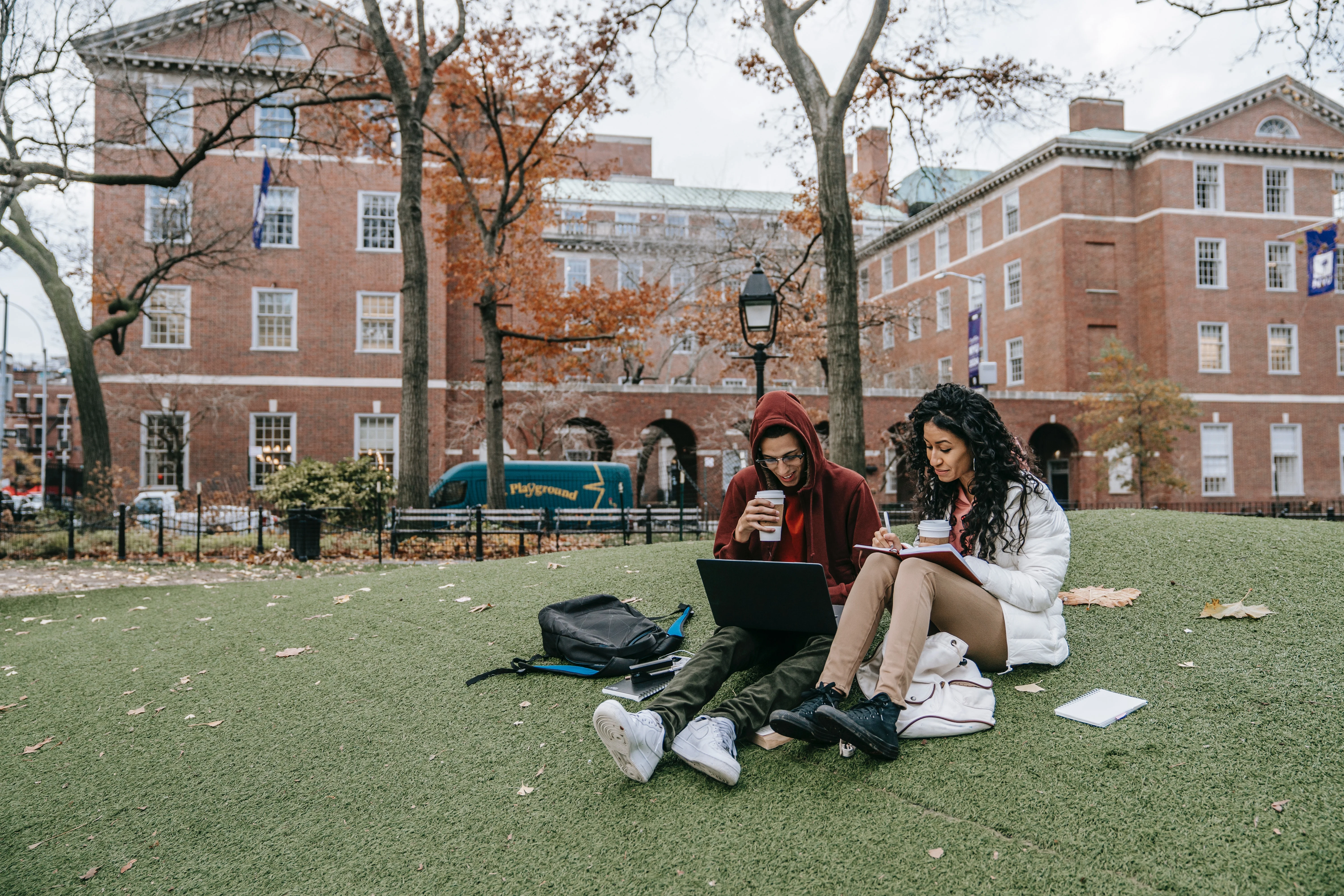- ព័ត៌មាន និងអត្ថបទផ្សេងៗ
- ព្រឹត្តិការណ៍ផ្សេងៗ
- ស្វែងរកពួកយើងIDP AustraliaIDP BahrainIDP BangladeshIDP CanadaIDP ChinaIDP EgyptIDP GhanaIDP Hong KongIDP IndiaIDP IndonesiaIDP IranIDP JordanIDP KenyaIDP KoreaIDP KuwaitIDP LebanonIDP MalaysiaIDP MauritiusIDP Middle EastIDP NepalIDP New ZealandIDP NigeriaIDP OmanIDP PakistanIDP PhilippinesIDP Saudi ArabiaIDP SingaporeIDP Sri LankaIDP Taiwan, ChinaIDP ThailandIDP TurkeyIDP UAEIDP VietnamIDP Corporate
- ឆានែលសង្គម
- ភាសាខ្មែរ
ប្រធានបទគ្របដណ្តប់
- Published: 17 April 2024
Studying abroad has always been a worthwhile experience. From obtaining a quality degree from an internationally recognised university to developing independence and an international perspective, it’s no wonder studying overseas is a valuable investment to build a successful career.
It is natural to have many questions that need answering, especially during these uncertain times.
At IDP, we have been helping students through their course selection and application process to fulfil their educational goals.
To accomplish this, we keep our ears to the ground to ensure students obtain the best education and experience possible while staying safe in their study destination.
Let us help answer some of the most popular questions that students and parents have asked us to help shed light on the current situation of studying abroad.

1) Will it be safe to study overseas?
Many study destinations have taken prudent measures to ensure the safety of the international students who are planning to study abroad in-person at their institutions.
The Australian Government, for example, has established their International Student Arrival Plan (which requires nomination by your university) to help students with their travel and quarantine arrangements to safely come to the country to study.
The UK Government has also given guidance to help international students prepare for their return (or flight) back to the country. This includes taking a COVID-19 test, pre-booking for a travel test package and self-isolation in your accommodation.
These measures collectively help students studying in the institutions to stay safe and foster an environment that prioritizes their health & well-being.
2) Why are the tuition fees the same if online learning from home is part of the curriculum?
University tuition fees are kept the same as institutions and universities are committed to delivering students the same quality of education they would expect to get from in-person lessons.
To accomplish this, money will have to be spent to develop online educational resources as well as enlist help from various tutors and lecturers.
The coursework and lessons that students go through during this period are produced at the highest quality possible and will in no way affect the quality or authenticity of the degree earned.
3) Who can we turn to for reliable information & advice given the uncertain global situation?
At IDP, we have the expertise and experience to help you navigate through these uncertain times with the latest advice to help you reach your educational goals.
From course selection and student visa application to planning your travel abroad, our education counsellors can help guide you through your unique situation & needs.
4) Are there any scholarships or financial aid we can apply for as an international student?
For example, Australia offers their Australia Awards Scholarships from the Department of Foreign Affairs & Trade, which pays for the full tuition fees including air travel and living expenses.
There are also many universities that offer merit-based, program-specific and sports scholarships that you or your child can apply for.
Our IDP educational counsellors can help you to identify and apply for the relevant and applicable scholarships unique to your situation.

5) Can I continue to stay in my country of study after I graduate to find a job?
Yes, many study destinations welcome international students to stay on and work after graduation.
For example, students learning abroad in Australia can apply for a Temporary Graduate Visa that will allow them to stay and work in the country for 2 to 4 years after graduation.
In Canada, you’ll be able to apply for their Post-Graduation Work Permit that allows you to remain in the country for up to 3 years to work there.
You can contact our IDP counsellors to help you navigate your options, especially during this uncertain period, should you want to work in your host country after graduation.
6) Is it possible to work while I study overseas?
Yes, as an international student, you will be able to take on various part-time jobs (from being a personal tutor to a sales rep) in various study destinations such as Australia, New Zealand and Canada.
It is important to note that you will have to get your work permit together with your student visa and meet the various requirements necessary to be allowed to work and study at the same time.
For example, in Australia, you are entitled to work up to 20 hours every fortnight during your school term and with no limits during your term breaks.
7) Will studying a curriculum online affect the quality of my degree or future prospects of employment?
No. Your degree will still be fully recognized. The curriculum will still be the same as well as the various examinations and requirements that you will need to complete in order to graduate.
Certain universities and courses will incorporate blended learning where you can experience both in-person and online lessons.
8) Would it be possible to live off-campus when studying overseas?
Yes, however, it will depend on your needs and your budget.
The majority of universities offer on-campus residences that many students choose to stay in to save on costs and be near their classes and study mates.
You can always check your options and discuss your budget with our IDP counsellors to help you find the best accommodation for you in your study destination.

Embark on your overseas study journey with IDP
Looking to pursue a degree abroad or have more questions that need answering?
We are here to help!
Our experienced counsellors can help guide you through the necessary steps of your application process to help you select the right course and university.
Take the next step with IDP today.
Book an appointment with us to get started.
មគ្គុទ្ទេសក៍សិក្សានៅក្រៅប្រទេសរបស់ IDP សម្រាប់សិស្ស និងមាតាបិតា៖ រាល់សំណួររបស់អ្នកបានឆ្លើយហើយ!
ការសិក្សានៅបរទេសតែងតែជាបទពិសោធន៍ដ៏មានតម្លៃមួយ។ តាំងពីសញ្ញាបត្រដែលមានគុណភាពពីសាកលវិទ្យាល័យដែលមានការទទួលស្គាល់ រហូតដល់ការអភិវឌ្ឍន៍ឯករាជ្យភាព និងទស្សនៈអន្តរជាតិ ការសិក្សានៅបរទេសគឺជាការវិនិយោគដ៏មានតម្លៃក្នុងការកសាងអាជីពដែលជោគជ័យ។
វាជារឿងធម្មតាទេដែលមានសំណួរជាច្រើនដែលត្រូវការចម្លើយ ជាពិសេសក្នុងអំឡុងពេលវឹកវរបែបនេះ។
នៅ IDP យើងបានជួយសិស្សក្នុងការជ្រើសរើសវគ្គសិក្សា និងការដាក់ពាក្យ ដើម្បីសម្រេចបំណងក្នុងការអប់រំរបស់ពួកគេ។
ដើម្បីសម្រេចបាននូវចំណុចនេះ យើងតាមដានព័ត៌មានថ្មីៗ ដើម្បីធានាថាសិស្សទទួលបានការអប់រំ និងបទពិសោធន៍ល្អបំផុតតាមដែលអាចធ្វើទៅបាន ព្រមទាំងរក្សាសុវត្ថិភាពនៅក្នុងគោលដៅសិក្សារបស់ពួកគេ។
អនុញ្ញាតឱ្យយើងឆ្លើយសំណួរដែលពេញនិយមមួយចំនួន ដែលសិស្សនិងអាណាព្យាបាលបានស្នើឱ្យជួយបំភ្លឺអំពីស្ថានភាពបច្ចុប្បន្ននៃការសិក្សានៅបរទេស។
១) តើការសិក្សានៅបរទេសមានសុវត្ថិភាពដែរឬទេ?
គោលដៅសិក្សាជាច្រើនបានចាត់វិធានការយ៉ាងតឹងរឹង ដើម្បីធានាសុវត្ថិភាពរបស់និស្សិតអន្តរជាតិដែលចង់ទៅសិក្សាដោយផ្ទាល់នៅស្ថាប័នរបស់ពួកគេ។
ឧទាហរណ៍ រដ្ឋាភិបាលអូស្ត្រាលីបានបង្កើតផែនការការមកដល់របស់និស្សិតអន្តរជាតិ (ដែលតម្រូវឱ្យមានការតែងតាំងដោយសាកលវិទ្យាល័យ) ដើម្បីជួយនិសិត្សក្នុងការរៀបចំការធ្វើដំណើរ និងការដាក់ឱ្យនៅដាច់ពីគេ ដើម្បីចូលមកប្រទេសដោយសុវត្ថិភាពដើម្បីសិក្សា។
រដ្ឋាភិបាលចក្រភពអង់គ្លេសក៏បានផ្តល់ការណែនាំដើម្បីជួយនិស្សិតអន្តរជាតិរៀបចំសម្រាប់ការវិលត្រឡប់មកប្រទេសវិញ។ នេះរាប់បញ្ចូលទាំងការធ្វើតេស្តរកមេរោគកូវីដ១៩ ការកក់កញ្ចប់តេស្តសម្រាប់ការធ្វើដំណើរ និងការនៅដាច់ដោយឡែក។
វិធានការទាំងនេះជួយសិស្សដែលកំពុងសិក្សានៅក្នុងស្ថាប័នឱ្យមានសុវត្ថិភាព និងបង្កើតបរិយាកាសដែលផ្តល់អាទិភាពដល់សុខភាពរបស់សិស្ស។
២) ហេតុអ្វីបានជាថ្លៃសិក្សានៅដដែល ប្រសិនបើសិក្សាអនឡាញនៅផ្ទះ?
តម្លៃសិក្សានៅដដែល ដោយសារស្ថាប័ន និងសាកលវិទ្យាល័យនានាខិតខំផ្តល់ការអប់រំដែលមានគុណភាពដូចដែលពួកគេរំពឹងថានឹងទទួលបានពីការសិក្សាផ្ទាល់។
ដើម្បីសម្រេចបាន គេត្រូវចំណាយថវិការបង្កើតធនធានអប់រំតាមអ៊ីនធឺណិត ក៏ដូចជាស្វែងរកជំនួយពីគ្រូបង្រៀន និងសាស្ត្រាចារ្យផ្សេងៗ។
វគ្គសិក្សា និងមេរៀនដែលសិស្សសិក្សាក្នុងអំឡុងពេលនេះ មានគុណភាពខ្ពស់បំផុតបំផុតតាមដែលអាចធ្វើទៅបាន ហើយនឹងមិនប៉ះពាល់ដល់គុណភាព ឬភាពដើមរបស់សញ្ញាបត្រនោះទេ។
៣) តើយើងអាចស្វែងរកព័ត៌មាន និងដំបូន្មានដែលអាចទុកចិត្តបានពីនរណា ក្នុងកំឡុងពេលមិនច្បាស់លាស់នេះ?
នៅ IDP យើងមានជំនាញ និងបទពិសោធន៍ ដើម្បីជួយអ្នកឱ្យឆ្លងកាត់ពេលវេលាមិនច្បាស់លាស់នេះ ជាមួយនឹងការណែនាំថ្មីៗ ដើម្បីជួយអ្នកឱ្យសម្រេចបាននូវគោលបំណងក្នុងការអប់រំរបស់អ្នក។
ចាប់ពីការជ្រើសរើសវគ្គសិក្សា និងការដាក់ពាក្យសុំទិដ្ឋាការ រហូតដល់ការធ្វើផែនការធ្វើដំណើរ អ្នកប្រឹក្សាអប់រំរបស់យើងអាចជួយណែនាំអ្នកតាមស្ថានភាព និងតម្រូវការរបស់អ្នក។
អ្នកអាចទំនាក់ទំនងដោយផ្ទាល់ជាមួយអ្នកប្រឹក្សាអប់រំនៅទីនេះ។
៤) តើមានអាហារូបករណ៍ ឬជំនួយហិរញ្ញវត្ថុដែលយើងអាចដាក់ពាក្យសុំបានដែរឬទេ?
មានអាហារូបករណ៍ផ្សេងៗដែលផ្តល់ដោយប្រទេសដូចជា អូស្ត្រាលី កាណាដា និងចក្រភពអង់គ្លេស។
ឧទាហរណ៍ ប្រទេសអូស្ត្រាលីផ្តល់អាហារូបករណ៍ Australia Awards ពីនាយកដ្ឋានកិច្ចការបរទេស និងពាណិជ្ជកម្ម ដែលបង់ថ្លៃសិក្សា រួមទាំងការធ្វើដំណើរ និងការចំណាយលើការរស់នៅ។
ក៏មានសាកលវិទ្យាល័យជាច្រើនដែលផ្តល់អាហារូបករណ៍ដែលផ្អែកលើគុណសម្បត្តិ កម្មវិធីមួយចំនួន និងអាហាររូបករណ៍កីឡា ដែលអ្នក ឬកូនរបស់លោកអ្នកអាចដាក់ពាក្យសុំបាន។
អ្នកប្រឹក្សាផ្នែកអប់រំ របស់ IDP យើងអាចជួយអ្នកក្នុងការស្វែងរក និងដាក់ពាក្យសុំអាហារូបករណ៍ដែលសមស្រប និងសាកសមទៅតាមស្ថានភាពរបស់អ្នក។
៥) តើខ្ញុំអាចបន្តស្នាក់នៅបានទេ ដើម្បីស្វែងរកការងារបន្ទាប់ពីបញ្ចប់ការសិក្សា?
បាន គោលដៅសិក្សាជាច្រើនស្វាគមន៍និស្សិតអន្តរជាតិឱ្យស្នាក់នៅ និងធ្វើការបន្ទាប់ពីបញ្ចប់ការសិក្សា។
ឧទាហរណ៍ សិស្សដែលរៀននៅអូស្ត្រាលីអាចដាក់ពាក្យសុំទិដ្ឋាការបញ្ចប់ការសិក្សាបណ្តោះអាសន្ន ដែលនឹងអនុញ្ញាតឱ្យពួកគេស្នាក់នៅ និងធ្វើការរយៈពេល ២ ទៅ ៤ ឆ្នាំបន្ទាប់ពីបញ្ចប់ការសិក្សា។
នៅកាណាដា អ្នកអាចដាក់ពាក្យសុំប័ណ្ណការងារក្រោយបញ្ចប់ការសិក្សា ដែលអនុញ្ញាតឱ្យអ្នកបន្តស្នាក់នៅរហូតដល់ ៣ ឆ្នាំដើម្បីធ្វើការនៅទីនោះ។
អ្នកអាចទាក់ទងអ្នកប្រឹក្សា IDP របស់យើង ដើម្បីជួយអ្នកស្វែងរកជម្រើស ជាពិសេសក្នុងអំឡុងពេលមិនច្បាស់លាស់នេះ ប្រសិនបើអ្នកចង់ធ្វើការបន្ទាប់ពីបញ្ចប់ការសិក្សា។
៦) តើខ្ញុំអាចធ្វើការបានទេ ពេលសិក្សានៅបរទេស?
បាន ក្នុងនាមជានិស្សិតអន្តរជាតិ អ្នកអាចធ្វើការងារក្រៅម៉ោង (ពីគ្រូបង្រៀន ដល់បុគ្គលិកផ្នែកលក់) នៅតាមគោលដៅសិក្សាផ្សេងៗដូចជា អូស្ត្រាលី នូវែលសេឡង់ និងកាណាដា។
អ្នកត្រូវដឹងថា អ្នកនឹងត្រូវមានប័ណ្ណការងាររួមជាមួយនិងទិដ្ឋាការសិស្ស ហើយបំពេញតាមតម្រូវការផ្សេងៗ ដើម្បីទទួលបានការអនុញ្ញាតឱ្យធ្វើការ ក្នុងពេលសិក្សា។
ឧទាហរណ៍ នៅប្រទេសអូស្ត្រាលី អ្នកមានសិទ្ធិធ្វើការរហូតដល់ ២០ ម៉ោងក្នុងពីរសប្តាហ៍ក្នុងអំឡុងពេលសិក្សា និងមិនកំណត់ក្នុងពេលឈប់សម្រាក។
៧) តើកម្មវិធីសិក្សាអនឡាញនឹងប៉ះពាល់ដល់គុណភាពសញ្ញាបត្រ ឬអនាគតការងាររបស់ខ្ញុំដែរឬទេ?
អត់ទេ សញ្ញាបត្ររបស់អ្នកនៅតែមានការទទួលស្គាល់។ កម្មវិធីសិក្សានៅដដែល មានការប្រឡង និងតម្រូវការផ្សេងៗដែលអ្នកត្រូវបំពេញ ដើម្បីបញ្ចប់ការសិក្សា។
សាកលវិទ្យាល័យ និងវគ្គសិក្សាមួយចំនួននឹងផ្ដល់នូវការសិក្សាបញ្ចូលគ្នា ដែលអ្នកអាចទទួលបានបទពិសោធន៍ទាំងការសិក្សដោយផ្ទាល់ និងការសិក្សាអនឡាញ។
៨) តើពេលសិក្សានៅបរទេស ខ្ញុំអាចទៅរស់នៅខាងក្រៅបានដែរឬទេ?
បាន ប៉ុន្តែវានឹងអាស្រ័យលើតម្រូវការ និងថវិការបស់អ្នក។
សាកលវិទ្យាល័យភាគច្រើនផ្តល់កន្លែងស្នាក់នៅក្នុងសាលា ដែលសិស្សានុសិស្សជាច្រើនជ្រើសរើស ដើម្បីសន្សំសំចៃ និងបាននៅជិតថ្នាក់រៀន និងមិត្តរួមថ្នាក់។
អ្នកអាចពិនិត្យមើលជម្រើសរបស់អ្នក និងពិភាក្សាអំពីគម្រោងចំណាយបស់អ្នកជាមួយអ្នកប្រឹក្សារបស់ IDP យើង ដើម្បីជួយអ្នកស្វែងរកកន្លែងស្នាក់នៅដែលល្អបំផុតសម្រាប់អ្នកនៅក្នុងគោលដៅសិក្សារបស់អ្នក។
ចាប់ផ្តើមដំណើរទៅសិក្សានៅបរទេសរបស់អ្នកជាមួយ IDP ចង់បន្តការសិក្សានៅបរទេស ឬមានសំណួរបន្ថែម?
យើងនៅទីនេះចាំជួយអ្នក!
អ្នកប្រឹក្សាដែលមានបទពិសោធន៍របស់យើង អាចជួយណែនាំអ្នកឆ្លងកាត់ដំណើរការដាក់ពាក្យ ដើម្បីជួយអ្នកជ្រើសរើសវគ្គសិក្សា និងសាកលវិទ្យាល័យដែលត្រឹមត្រូវ។
ចាប់ផ្ដើមជំហានបន្ទាប់ជាមួយ IDP នៅថ្ងៃនេះ។
គណនីមួយសម្រាប់តម្រូវការការសិក្សានៅបរទេសរបស់អ្នកទាំងអស់។
បង្កើតកម្រងព័ត៌មានរបស់អ្នក និងដោះសោមុខងារជាច្រើនរួមទាំងការណែនាំផ្ទាល់ខ្លួន កម្មវិធីដែលតាមដានបានលឿន និងច្រើនទៀត។
Search for articles
Dive into our extensive collection of articles by using our comprehensive topic search tool.















